I’ve always appreciated the sly humor of the name, A Noise Within (ANW) —You know, as in stage directions: “… a noise within.” And what this growing Pasadena-based theatrical company continues to provide in its 23rd year is that rarity of Southern California theatre: a classical rotating repertory.
Rotating rep makes punishing artistic, financial and technical demands. For that reason, it has been abandoned by most American theatres. And yet A Noise Within has soldiered on, refusing to give it up. The three plays on its current menu, taking turns on stage, could hardly be more different. They are Charles Morey’s free adaptation of Beaumarchais’ 18th-century The Marriage of Figaro, which Morey renamed simply Figaro; Michael Feingold’s eminent and really dark translation of the Bertolt Brecht-Kurt Weill The Threepenny Opera, and Shakespeare’s Julius Caesar.
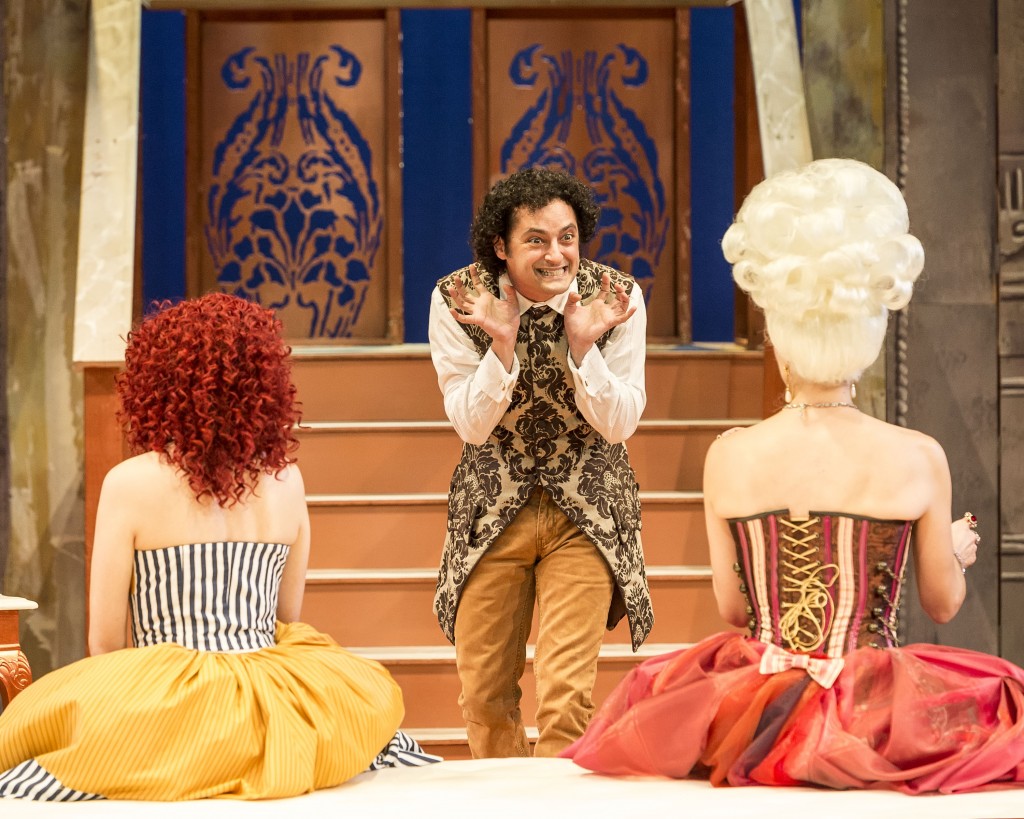
Of the three productions, the most frolicsome is the Figaro, in a giddy, polished staging by Michael Michetti. It’s a delicious boudoir romp, deliriously complicated (aren’t they always?), in which the actors seem to be having a great deal of fun and the comedy extends to Angela Balogh Calin’s playful reinventions of classic, modern and whatever costumes. Calin’s outfits are most triumphantly realized in the gowns (can we even call them that?) worn by the Countess Almaviva, played to a fare-thee-well by Elyse Mirto. The entire cast is to be cheered on, but the play’s uncontested anchor is Andrew Ross Wynn’s blustery bon-vivant Count Almaviva, with near-seconds being Jeremy Guskin’s sprite of a Figaro and the spirited Angela Sauer’s wily Suzanne.
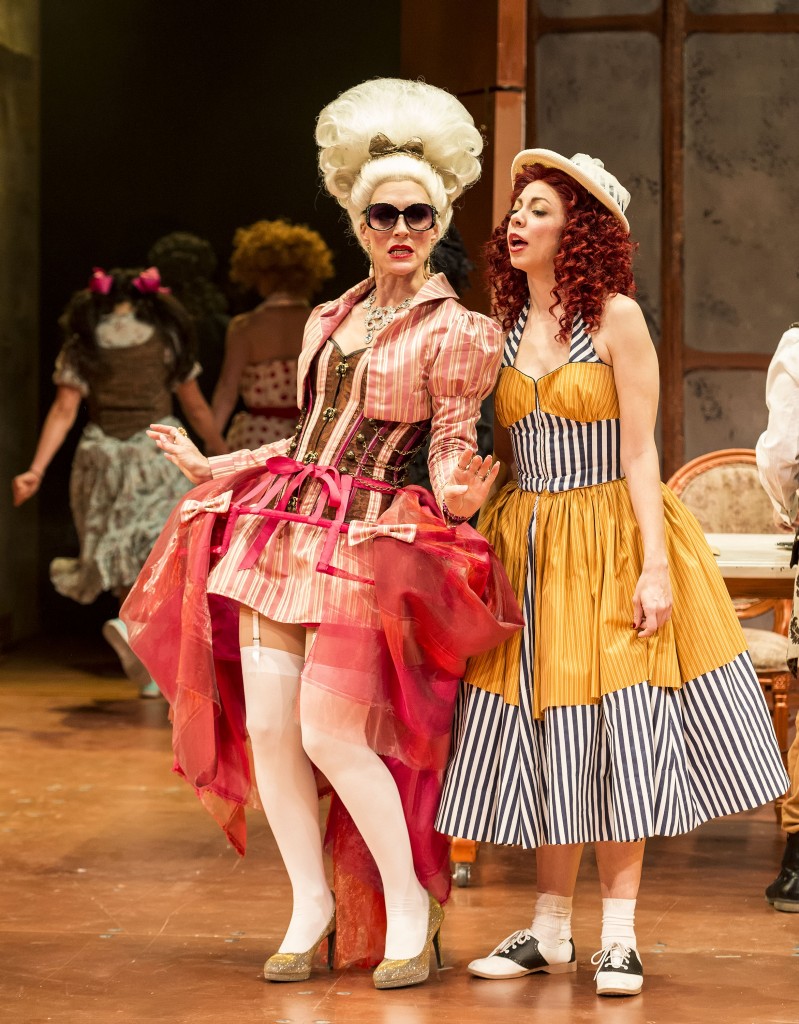
(Was Beaumarchais the first multi-tasker? Wikipedia calls him a “playwright, watchmaker, inventor, musician, diplomat, fugitive, spy, publisher, horticulturalist, arms dealer, satirist, financier and revolutionary, both French and American.” One of his inventions was a watch mounted on a ring that might have qualified him for a job at Apple. Designed for the King’s mistress, Madame de Pompadour, the watch-ring, acknowledged by France’s Academy of Sciences after a kerfuffle with the King’s watchmaker who tried to it pass it off as his own, earned Beaumarchais more notoriety and a valuable introduction to the Versailles court.)
Production number two, the brash Brecht-Weill Threepenny Opera, a barely veiled assault on the Weimar Republic and Nazi decadence based on John Gay’s Beggar’s Opera and written in the music hall style of German cabaret, has to be one of ANW’s most ambitious projects. Clocking in at just under three hours and staged by the ever-reliable artistic team of Julia Rodriguez-Elliott and Geoff Elliott, it is huge in scope, large in cast size, its dissonant music wildly demanding of top vocal talent — in short a theatrical meal worthy of Henry VIII.
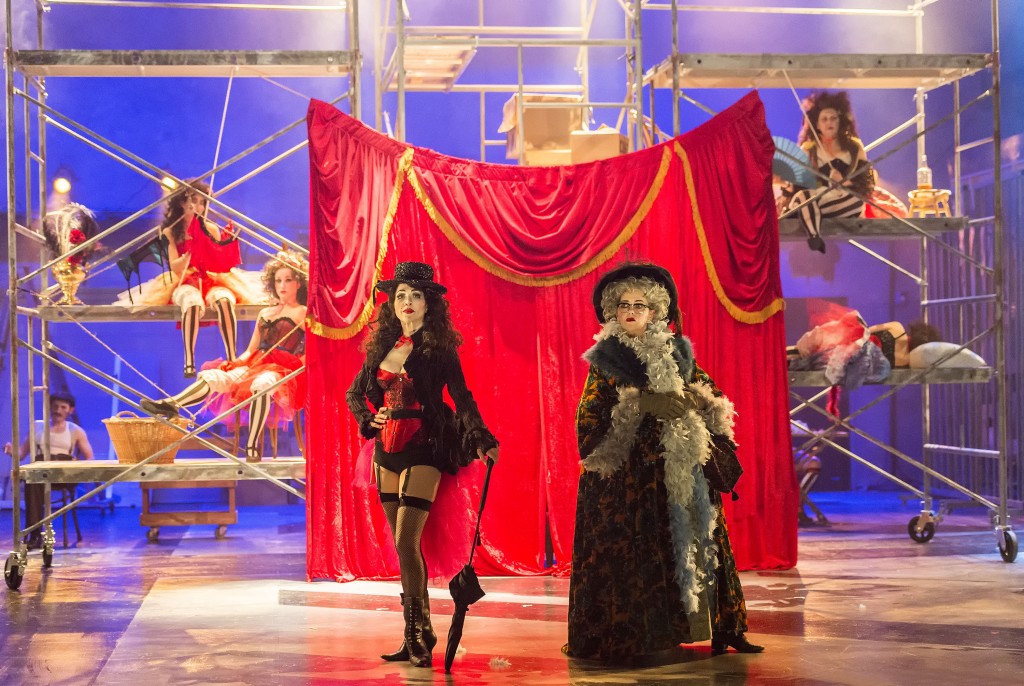
Yet for all of the remarkable individual successes within it (the voices are uniformly strong), the totality of the achievement feels a little studied and effortful, its dark forces not fully able to deliver the sourness all the way, especially in the first half. Exceptions are the outsized caricatures of Mr. and Mrs. Peachum (superbly rendered by veterans Deborah Strang and Geoff Elliott), the sexy Stasha Surdyke as Jenny Diver, Maegan McConnell’s clearheaded, fearless Lucy Brown and Marisa Duchowny’s big-voiced Polly Peachum. All do admirable individual turns.
But in the more persuasive second half, the important central casting of Andrew Ableson as MacHeath more clearly reveals the reasons for the production’s slight drag. Ableson has the voice, but not enough of the confident swagger and strong, menacing presence that this dominant role requires. That charismatic quality is crucial and its absence refuses to be ignored.
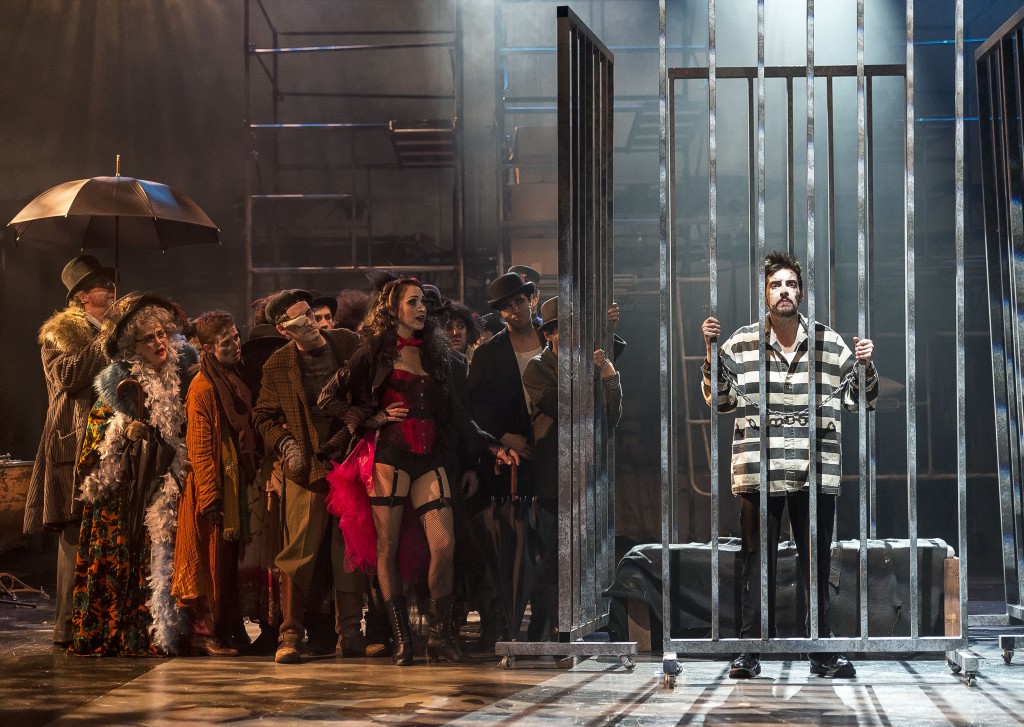
Calin’s ragtag costumes are again key to mood-setting and the Jungle Gym setting by Frederica Nascimento, enhanced by Ken Booth’s masterful lighting, add an element of appropriate disorder, but they also are cleverly designed to serve two plays at once — Threepenny Opera and Julius Caesar.
Booth’s nuanced lighting and major portions of the metal scaffoldings of the Threepenny set (including the sliding jail partitions), serve as context for an austere, fast-paced, well-calibrated production of Shakespeare’s play, briskly directed again by Elliot & Elliott. This double-duty all around is a shrewd solution to the labor-intensive complications of rotating rep.
Smartly, the Julius Caesar relies chiefly on the power of the language and of the striking speeches in the play, plus a handful of visual and directorial embellishments, and strong performances by some of the company’s best talent. Notable among the actors are Robertson Dean (Brutus), Patrick O’Connell (Julius Caesar), Rafael Goldstein (Mark Antony), Freddy Douglas (Cassius) and Strang in a plausible gender substitution as Casca.
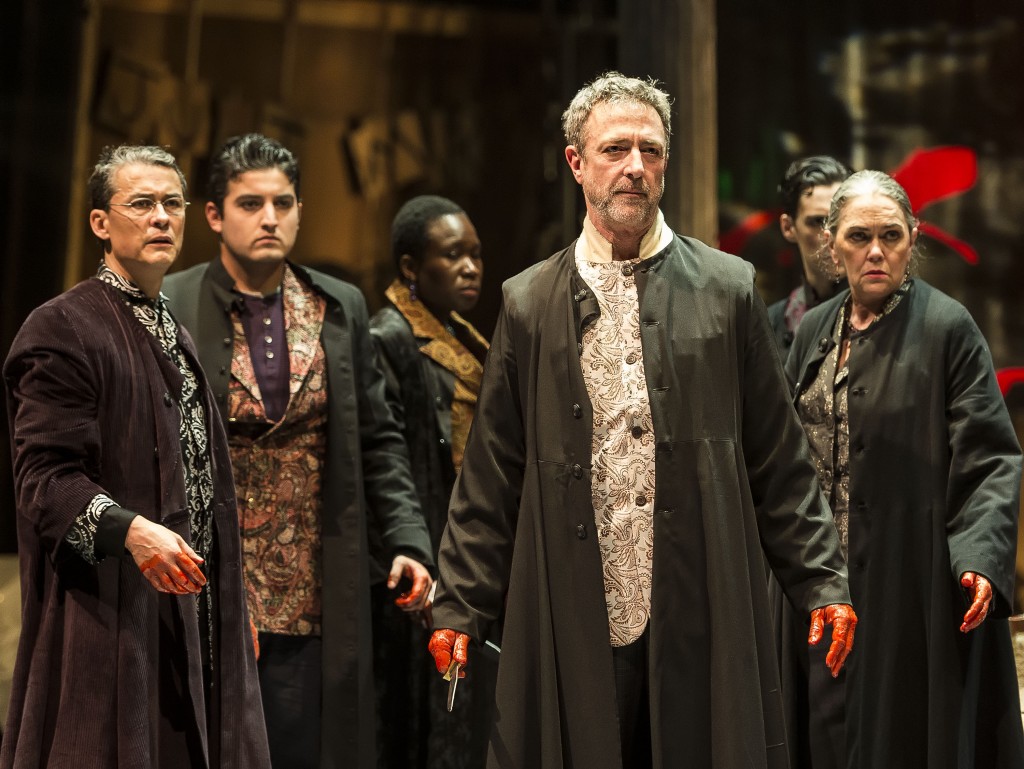
If you have not attended any of these productions, they all have been extended through much of May. And the good news is that there is not a bad seat in the house.
Top Image: The cast of Julius Caesar moments before battle.
All photos by Craig Schwartz.
WHAT: Figaro, The Threepenny Opera, Julius Caesar
WHERE: A Noise Within, 3352 East Foothill Blvd., Pasadena, CA 91107.
WHEN: Thursday-Sunday (some exceptions). The Threepenny Opera and Julius Caesar end May 24. Call 626-356-3100 ext.1 for dates and times or go to http://www.anoisewithin.org. Figaro plays April 19 (2 & 7pm), April 30 (7:30pm), May 1 (8pm), May 10 (2 & 7pm). Ends May 10.
HOW: Tickets for all shows start at $40, available in person at the box office or at 626-356-3100 ext.1 or at http://www.anoisewithin.org. Student Rush with ID an hour before performance: $20.
